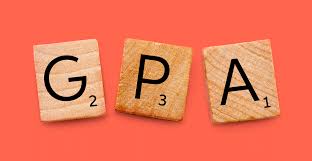
A decimal number below five can determine your entire future. That’s what many high school students think about the magic number that is GPA. However, that’s not entirely true.
For starters, GPA is not an appropriate measure of a student applicant. While GPA rewards work in the classroom, it often fails to account for work outside of it. Further, it’s important to realize that every student is not an equal playing field. Some students face socio economic difficulties that distract their focus from school, and others have low attention spans. Simply put, there’s a load of extraneous factors that add or detract from a student’s GPA, factors that GPA doesn’t account for.
There are also several issues with the accuracy of a student’s GPA. For one, GPA fails to account for widespread discrepancies in the U.S. education system, with Brigham Young University reporting that the US spent about $1,000.00 less per pupil in a low SES (socioeconomic status) school district than in a high SES (socioeconomic status) district. This disparity in spending results in lower SES school districts facing a higher teacher turnover rate, leading to a ruthless cycle in which schools with lesser funding constantly underperform.
These educational challenges are further compounded by the fact that lower SES school districts offer fewer AP courses, which normally increase metrics such as GPA. This is reflective of the inherent inequities present in the current US education system, which fails to provide a level playing field for students across the country. Threfore, it must be questioned if GPA is truly an accurate measure of student success, and about whether it should be applied in schools across the country.
A crucial point that must be noted is that GPA isn’t always an accurate measure of a student’s academic performance. According to Psychology Today, 80% of American high schoolers report cheating in some form, as many questions for many tests and quizzes are available on online platforms such as Chegg and Quizlet. GPA fuels this craze of cheating, as students compete to get the top GPA in their school, using whatever means necessary. This phenomena is especially present in hypercompetitive schools such as Carnegie, where students often link their own self-worth with their.
This obsession is unhealthy in the long-term, and can lead high schoolers to lose focus of the bigger picture. Students shouldn’t be studying for GPA, they should be studying out of passion and out of a desire to build a succesful future. Should so much emphasis be placed on getting the perfect GPA? Should students aim for a perfect GPA, even if it means that they unpassionately study concepts and use cheating to get by? These are questions that current high schoolers and those responsible for shaping education policy must grapple with.
Finally, in today’s changing ecosystem, leadership, innovation and problem solving skills are more important than bagging the perfect grade. Nowadays, colleges follow the process of holistic review, with a student’s personality and extracurricular achievements having a greater weightage. In the long-term, colleges and recruiters are placing less emphasis on GPA with AOL.com, a reputable news provider, citing that only 6% of employers think that a job candidate GPA is the most important piece of information.
With all of this said, it’s still important to note that GPA cannot easily be discounted. GPA is still used by many colleges as a metric to track student achievement, and for low-income students that cannot afford to participate in extracurriculars, a good GPA can unlock a life-changing college education. However, at the same time, high svhoolers shouldn’t strive to join the ‘cult of perfection’ and worry about getting a perfect score precisely for the purpose of having a good GPA. Rather, students should passionately work towards their academic and career goals, and should think about the long-term.







